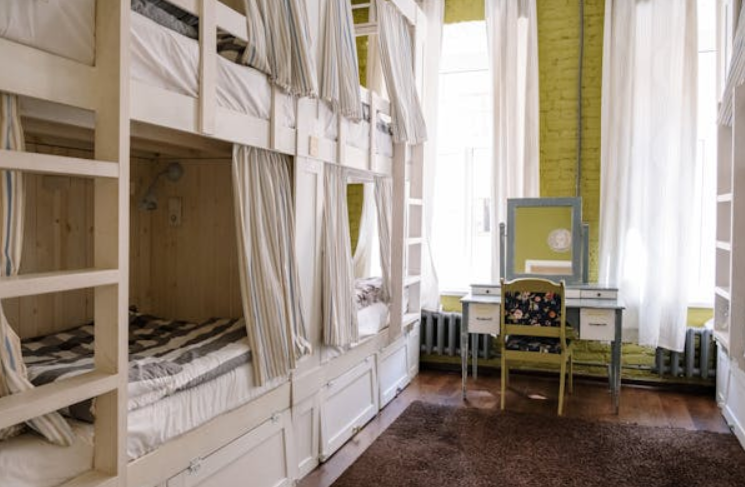Hostel vs. Hotel: Why Hostels Are the Best Choice for Group Travel
Traveling with a group presents a unique set of challenges, from coordinating accommodations to managing budgets and ensuring everyone stays together. While hotels may seem like the traditional choice, hostels have increasingly become the preferred option for group travelers seeking affordability, social engagement, and flexibility. Understanding why hostels are the superior choice requires looking beyond preconceived notions and recognizing the many benefits they offer compared to hotels.
Affordability Without Compromising Comfort
One of the most compelling reasons to choose a hostel over a hotel when traveling as a group is cost. Hotels can quickly become expensive, particularly in major cities or during peak travel seasons. When booking multiple hotel rooms, expenses add up fast, making it difficult for groups to travel without stretching their budget.

Hostels, on the other hand, offer significantly lower rates per person, especially in dormitory-style rooms designed to accommodate larger numbers. These shared spaces allow groups to stay together without the need for multiple expensive rooms, ensuring that everyone remains within the same space while enjoying substantial savings. Many hostels also provide free amenities such as Wi-Fi, breakfast, and communal kitchens, which further reduce costs. Instead of spending money on dining out for every meal, travelers can prepare food together, saving money that can be used for other experiences.
Stronger Social Atmosphere and Shared Experiences
Another reason hostels are ideal for group travel is the strong sense of community they foster. Unlike hotels, which often feel isolating with individual rooms and limited shared spaces, hostels are designed for interaction. Common areas such as lounges, kitchens, and game rooms encourage guests to engage with one another, creating a lively and welcoming atmosphere.
For group travelers, this dynamic environment makes it easier to bond and interact with fellow travelers from around the world. Whether it’s through organized hostel activities like pub crawls, cooking nights, or city tours, hostels provide countless opportunities to make connections. Groups that enjoy socializing will appreciate how hostels encourage conversations, cultural exchange, and new friendships, turning the travel experience into something far more enriching than simply booking a private hotel room.
Flexible Accommodation Options
Hotels operate with a rigid structure, offering standard rooms that often lack variety for different group sizes. Booking multiple hotel rooms can be a logistical headache, and if rooms are not available near each other, groups may find themselves split up, diminishing the sense of shared experience.
Hostels provide more flexibility in accommodation arrangements, catering to different group sizes with dormitory options ranging from small shared rooms to larger bunk-style dorms. Many hostels offer the option of booking an entire dorm room for private use, allowing groups to stay together while still benefiting from hostel amenities. Some even have private rooms for those who prefer extra privacy, making it possible to tailor accommodations to suit everyone’s needs within the same location.
Convenient Communal Spaces for Group Gatherings
Hotels rarely provide communal areas where groups can gather comfortably. While lobbies or business centers may offer limited seating, they are not designed for socializing or relaxing as a group. Hostels, in contrast, emphasize shared spaces that make it easy for groups to interact, plan activities, and spend time together.
Most hostels include large kitchens, rooftop terraces, outdoor patios, and cozy lounges that are perfect for hanging out after a long day of sightseeing. These spaces allow groups to meet, play games, cook meals, and share stories, enhancing the overall travel experience. Having access to communal areas helps maintain the sense of togetherness that is often lost when staying in a hotel, where guests retreat to their separate rooms.

Engaging Activities and Local Experiences
Hostels often go beyond simply providing a place to sleep; they aim to create an engaging experience for travelers. Many hostels organize activities and events that introduce guests to the local culture, from walking tours and food tastings to language lessons and live music nights. These experiences make travel more immersive and enjoyable, providing groups with unique opportunities they might not easily find when staying at a hotel.
Hotels tend to focus on luxury services, offering amenities like room service, pools, and spas, but they rarely provide the same level of interaction with local culture. Staying in a hostel allows groups to participate in experiences that bring them closer to the destination and its people. Whether joining a cooking class or taking part in a guided adventure, hostels ensure that travel is not just about accommodation but also about creating lasting memories.
More Relaxed and Laid-Back Environment
One of the biggest differences between hotels and hostels is the overall vibe. Hotels often maintain a formal and structured atmosphere, with strict check-in times, rules, and minimal guest interaction. While this setup works for business travelers or those seeking privacy, it may not suit groups looking for a relaxed and social environment.
Hostels embrace a more laid-back approach, allowing travelers to feel at home. The friendly and informal setting makes it easier for groups to unwind, meet new people, and enjoy their trip without the pressure of adhering to strict hotel policies. This atmosphere is particularly beneficial for younger travelers, backpackers, and adventure-seekers who prefer an open and welcoming space over a structured hotel environment.
Safety and Security for Group Travel
A common misconception about hostels is that they lack security, but many modern hostels prioritize safety just as much as hotels do. Most reputable hostels provide secure key card access, lockers for valuables, 24-hour reception, and surveillance cameras to ensure guests feel safe. In contrast to hotels, where guests often come and go without much interaction with staff, hostels have a more community-driven approach, meaning travelers can rely on fellow guests and staff for assistance when needed.
For groups, this level of security is reassuring, as it ensures that personal belongings remain protected while also fostering a sense of responsibility among travelers. Many hostels even have female-only dorms for added comfort, making them a suitable option for all kinds of group travel.
Conclusion
Choosing a hostel over a hotel for group travel is a decision that brings numerous benefits, from affordability and flexibility to social engagement and convenience. Hostels create an environment where travelers can bond, share experiences, and fully immerse themselves in the journey without the financial strain associated with hotels. With spacious dormitories, communal areas, and organized activities, they provide everything needed for a fun and memorable group trip.
For those looking to experience the world together while making new connections and enjoying unique travel moments, hostels remain the best choice. Whether planning a weekend getaway or an extended adventure, staying in a hostel ensures that group travel is not only more budget-friendly but also more engaging and fulfilling.


